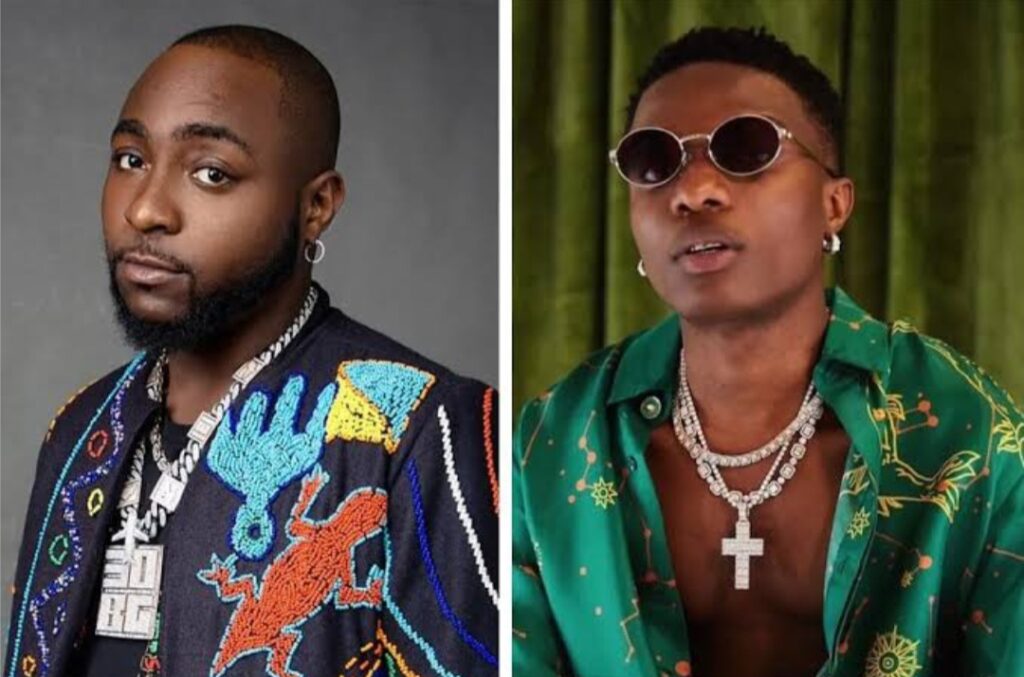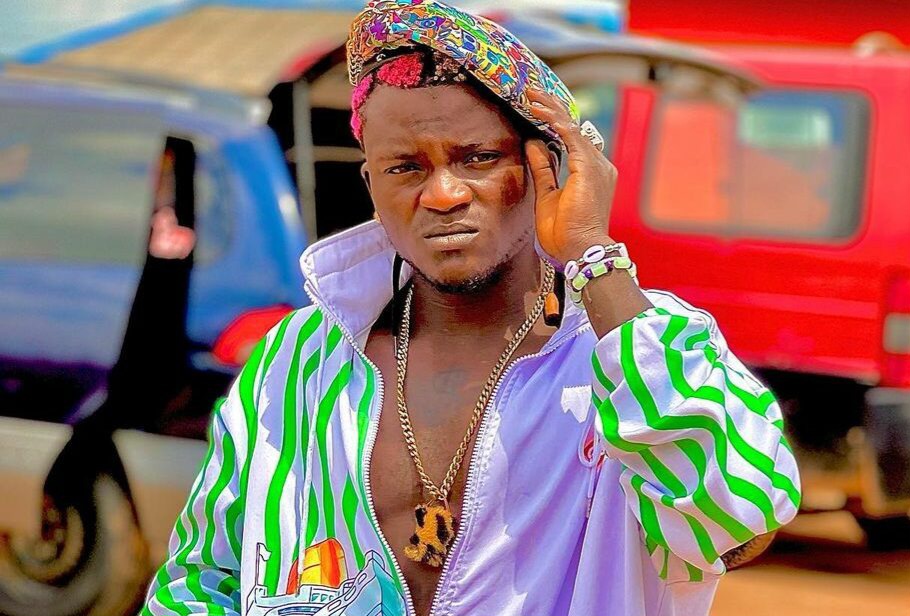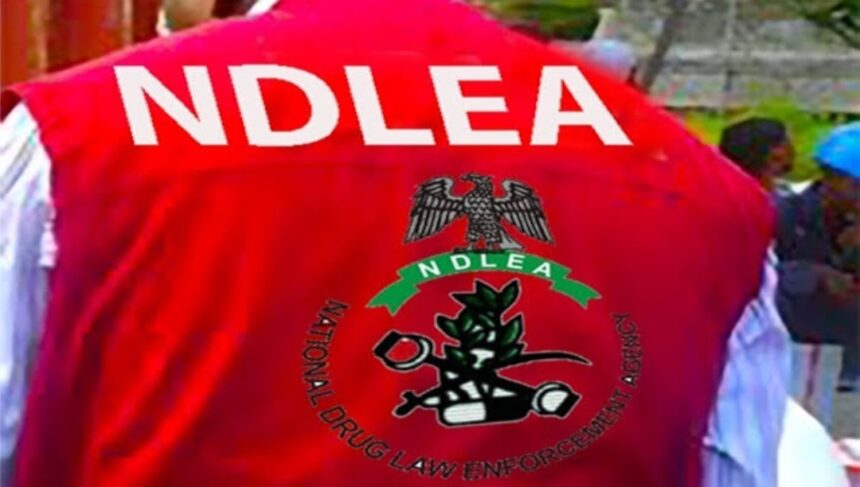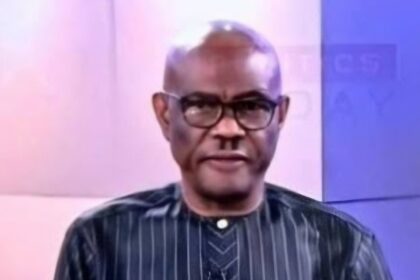– How Lethal Lure of Narcotics Imperil Youths in the Age of Social Media
Under the veneer of glitz and glamour, a darker narrative unfolds in the intoxicating fumes of hard drugs. In a world where fame confers power and influence, an unsettling reality looms in the flagrant disregard for the rule of law by so-called entertainers, and the alarming apathy of the National Drug Law Enforcement Agency (NDLEA), a body charged with safeguarding the nation’s youth from the perilous grip of narcotics.
A Brazen Spectacle of Defiance
As millions of eyes feast on the antics of entertainers, a disturbing trend has emerged. From the unfiltered videos of Portable’s wild rants, with joints firmly clenched between his teeth, to the polished Instagram posts of Davido and Wizkid, where the haze of marijuana smoke swirls like a toxic halo, Nigeria’s celebrities have made a public spectacle of their dalliance with hard drugs. Even more alarming is the silence—deafening in its implication—from the NDLEA, the very agency tasked with enforcing the nation’s drug laws. …CONTINUE READING

Seun Kuti, with his rebellious spirit and ancestry rooted in activism, once brandished a pipe in a live video, defiantly challenging societal norms. Yet, where is the outrage? Where are the handcuffs that should clink around the wrists of these stars? The NDLEA remains conspicuously absent, their indifference a tacit endorsement of this dangerous dance.
The Ramifications of a Lawless Stage
The ramifications of ignoring such blatant defiance are profound and far-reaching. When celebrities, the demigods of modern culture, are allowed to flaunt their disregard for the law with impunity, it sends a message that echoes far beyond the screens of smartphones. It tells the young, impressionable minds who idolize these figures that the rules do not apply to the powerful, and that the use of banned substances is not only acceptable but glamorous.
This unholy union between celebrities and hard drugs has birthed a generation emboldened by the perceived invincibility of their idols. Skitmakers, musicians, and actors alike have taken to their platforms, nonchalantly showcasing their indulgence in marijuana, cocaine, and other narcotics, with little fear of retribution. The NDLEA’s apathy has not only failed to deter such behaviour; it has inadvertently endorsed it, leading to a dangerous normalization of drug use among Nigeria’s youth.
A Nation on the Edge: The Youth and Their Silent Plunge
In the quiet corners of rooms, in the dim lights of nightclubs, and at the frothy edges of pool parties, a silent plague spreads. Teenagers and young adults, emboldened by the perceived immunity of their idols, now consume marijuana and cocaine with a reckless abandon that defies the warnings of health experts and the law alike. The NDLEA’s laxity in enforcing drug laws among celebrities has emboldened a generation to flaunt their indulgence online, where the number of likes and shares can often be mistaken for validation.
These youth, now entangled in the seductive grip of narcotics, are dancing on the precipice of disaster. At high school passing-out parties, at random get-togethers in hotel lounges, and at private gatherings, the air is thick with the scent of marijuana, the sting of cocaine, and the ominous silence of law enforcement’s absence.

The Seductive Lure of the Forbidden
The allure of hard drugs, amplified by the magnetic pull of celebrity culture, has created a perilous landscape for Nigeria’s youth. This is no longer a private vice but a public spectacle, where the boundary between fame and infamy has been blurred beyond recognition. The NDLEA’s failure to act is not just a lapse in judgment; it is a betrayal of the very foundation of law and order.
When celebrities flaunt their drug use, they do more than just break the law—they rewrite the narrative for millions of young people who look up to them. They make the illegal seem acceptable, the dangerous seem desirable. And when the NDLEA turns a blind eye, it does more than just neglect its duty; it becomes complicit in the slow erosion of a generation’s moral compass.
The Looming Consequences of Apathy
The consequences of this apathy are already being felt across the nation. The rise in drug use among teenagers and young adults has brought with it a host of social ills, from the breakdown of family structures to the increase in criminal activities fueled by addiction. The impact on Nigeria’s youth population, and its future leaders, is nothing short of catastrophic.
A study conducted by the Center for Drug Use and HIV/HCV Research (CDUHR) at New York University paints a grim picture. Among those who use drugs, a significant portion has taken to social media to document their experiences—often with regret. The study revealed that more than a third of participants posted on social media while high, with a substantial number later regretting it. The regret is not merely about embarrassment; it is about the lasting social and professional harm that such posts can cause.
A Nation’s Moral Compass at Risk
The unchecked rise in drug use among celebrities and their followers poses a direct threat to the nation’s moral compass. The social media platforms that should be avenues for creativity and connection have instead become stages for the promotion of drug culture, with devastating consequences. The NDLEA’s failure to address this issue sends a clear message: that the laws of the land are malleable, bendable by the weight of fame and fortune.
But beyond the immediate impact on individuals lies a more insidious threat: the erosion of social cohesion. As more young people succumb to the lure of narcotics, the bonds that hold communities together begin to fray. Families are torn apart by addiction, communities are destabilized by crime, and the nation’s collective future is compromised.

Justice and Reform
The time for the NDLEA to act is now. The agency must shed its cloak of indifference and rise to the challenge of enforcing the laws that are meant to protect the nation’s youth. Celebrities who brazenly flaunt their drug use must be held accountable, not just for their own actions, but for the influence they wield over millions.
The NDLEA’s commitment to its mission must be unwavering. It must send a clear and unmistakable message that no one, regardless of their fame or status, is above the law. By cracking down on celebrity drug use, the NDLEA can begin to reclaim the moral high ground and restore faith in the rule of law.
Saving a Generation
Nigeria stands at a crossroads. The choices made today will determine the future of its youth, its culture, and its very soul. The NDLEA’s decision to ignore celebrity drug use is not just a failure of enforcement; it is a failure of vision, a failure to see the long-term consequences of inaction.
The unholy union between celebrities and hard drugs must be severed before it is too late. The NDLEA must rise to its responsibility, not just as a law enforcement agency, but as a guardian of the nation’s future. The stakes could not be higher, for in the battle against narcotics, the very soul of the nation hangs in the balance.
The time to act is now before the next generation is lost to the seductive pull of narcotics and the false glamour of celebrity culture. The NDLEA must step forward and enforce the laws with the full weight of its authority, ensuring that no one is above the law. Only then can Nigeria begin to heal from the wounds inflicted by this unholy dance and secure a future where the rule of law, not the lure of drugs, reigns supreme.



